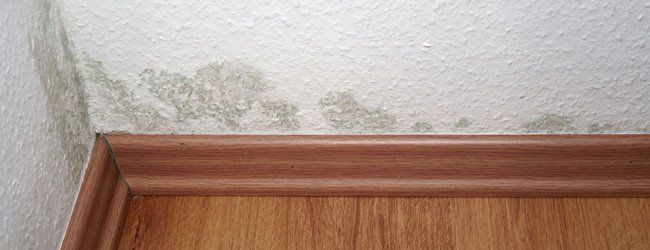Helpful Water Tips in Johnson City, TN
Insect and termite infestations are some of the common problems that arise when you have a wet basement. Having it waterproofed will prevent this from happening and also reduce the possibilities of structural damage.

Water Problems Cause
- Water seeks its path of least resistance and it seeks its own level.
- One inch of rain on one acre of ground equates out to 27,658 gallons of water.
- The fill dirt around your house is less dense than the original soils that have not been disturbed. This allows the false water table to rise around the house creating hydrostatic pressure.
- Because the backfill compacts itself with its own weight, settlement of the backfill can continue for 7 to 10 years, and combined with the expansion and contraction factor of clay, it will put much pressure on your foundations walls causing cracks and wall bowing.
- Clay has a very high acidic content, (approx. 4.5 PH in this region), and the water that flows through the veins or capillaries and settles around your house in the backfill decomposes the lime in your concrete or concrete block and mortar joints. Concrete and concrete blocks are made of sand, stone, cement, and lime. Lime is the bonding agent in the formula.
- Original waterproofing, (your tar), deteriorates in 1 to 3 years because it is subjected to acidic water. That is why the builder only gives 1 year warranty on your waterproofing.
- When the tar wears out, the water starts seeping through the porous concrete settling into the hollow cores of the concrete blocks eating away at it from the inside out. Creating first capillarity, soon after, leaks and eventually structural damage.
- The cove area or cold joint is the weakest point and the most common area to leak because this is where your footer, wall, and floor meet, they do not bond. Outside water poses 5 problems to homeowners.
5 Problems Outside Water Can Cause to Homeowners
- Wall: Water settles along the outside of your walls soaking and seeping through causing capillary action, wall moisture - weakening the wall in general.
- Pressure: As water builds up outside your foundations wall, its accumulation creates (hydrostatic pressure). Add to that the extreme pressures caused by the expansion and contraction of the clay and soil. You will see wall cracks, bowing walls and even wall collapse.
- Acid load: The accumulated water sitting outside your walls has a very high acidic content because of the high PH factors, (approx. 4.5) of the clay soil. This high PH water seeps through and settles at the bottom of the wall (inside the hollow cores of the block). Since the brunt of this acid load lies at the bottom of the wall, it actually deteriorates the lower section of the wall causing the foundations failure.
- Footer undermining: When the water on the outside of your wall rises to high levels, it has the ability to push under the footer of your house taking the underlying packed soils with it causing footers to give way and crack. Since the walls are supported by the footers, your walls could crack, sink or give way completely.
- Floor pressure: The same high levels of water pressure (hydrostatic pressure) pushing under your footer ends up under the floor slab creating floor pressure that leads to floor cracks, floor failures and cove leaks.
*Typically, 80% of your problem is in the wall and only 20% is in the floor. If you don’t address all of these problems, you are not fixing 100% of your problem.
Contact
Safe-Way Pest Control and hire us for superior waterproofing services today!
Complete WARRANTIES and GUARANTEES are also available.
Contact us to schedule your FREE
pest inspection!
423-283-4522
"I have been a customer with Safeway for 20+ years. Have been very satisfied with the employees' work ethics and service all these years. I recommend them very highly!"
- Elizabeth P.


